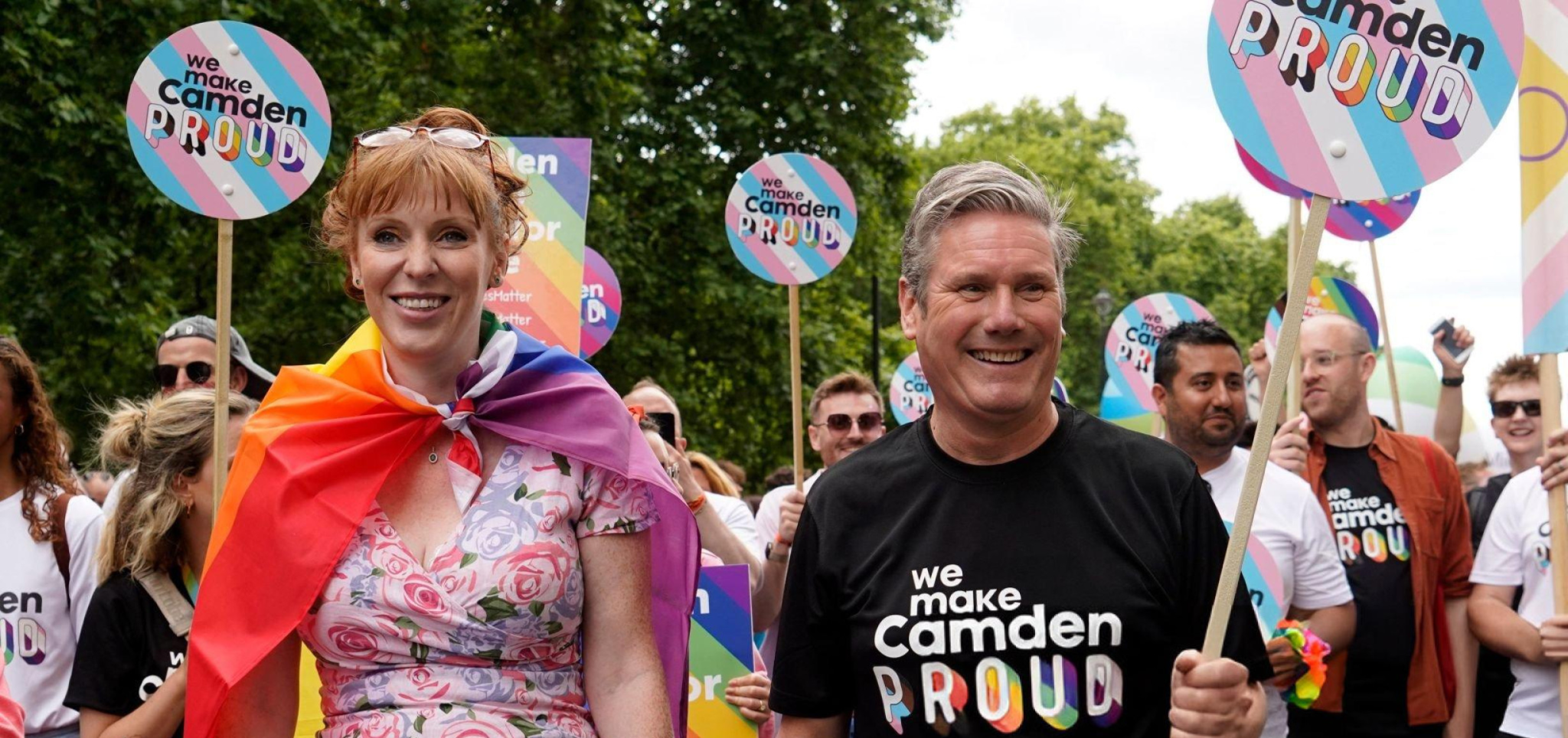Major UK pride parades ban political parties amid trans rights backlash
Four of the United Kingdom’s largest pride parades have announced an unprecedented ban on political party participation this summer, citing what organisers describe as an ongoing betrayal of trans rights by political leaders.
Pride in london, manchester pride, brighton & hove pride and birmingham pride issued a joint statement yesterday, confirming that no political party will be permitted to march under official banners at their events this year. The decision, they said, was made in solidarity with the trans community, which they accuse political leaders of abandoning following a recent Supreme Court ruling.
The statement refers to last month’s decision by the UK supreme court which determined that the term “woman” under the equality act 2010 refers exclusively to biological sex, effectively excluding trans women from that legal definition. The court ruled unanimously that while trans people remain protected under the category of “gender reassignment,” the legal definition of sex pertains solely to the sex assigned at birth.
Following the ruling, Prime Minister Keir Starmer confirmed that he does not believe trans women are women—sparking widespread condemnation from LGBTQ+ advocacy groups. The pride organisers said this was the final straw in a pattern of backpedalling on trans rights by mainstream political parties.
“In this moment, we choose to stand firmer, louder, and prouder in demanding change that protects and uplifts trans lives,” the statement read. “That is why this year, we are collectively suspending political party participation in our Pride events.”
The decision has been met with mixed reactions. While some LGBTQ+ campaigners have applauded the move as a necessary act of protest in the face of what they describe as political cowardice, others have expressed concern that excluding political parties may alienate potential allies within the political sphere.
LGBT+ liberal democrats, the liberal democrat party’s LGBTQ+ wing, said they were “sickened to our core” to be lumped in with labour and the conservatives, who they accuse of “swithering” on trans rights. “We look forward to constructive dialogue with pride organisers so we can come back bigger and better, while those parties who pander to bigotry and hatred can be left in the past where they belong,” their statement read.
TransActual UK director Jane Fae told metro that, while the exclusion of political parties is regrettable, it may also be overdue. “The history of pride is rooted in protest and civil disobedience, not ‘making nice’ with populist politicians,” she said. “Since the ruling, not a single party has offered wholehearted support to the trans community. Instead, they’ve used weasel words, making no real difference.”
Fae added that trans people now feel increasingly “banished from society,” and that political parties complaining about exclusion from a few hours of parade “need to reflect on what true exclusion looks like.”
International LGBTQ+ rights organisations have warned that the UK is part of a wider, disturbing global trend of trans rights being rolled back. Pride organisers drew parallels to Hungary, where Pride events have been banned, and the United States, where a growing number of states have restricted healthcare access for trans youth and barred trans students from participating in sports.
“The UK must not follow this path of regression,” organisers said. “Instead, it must rise as a global leader in human rights and equality.”
The UK, once ranked the most LGBTQ+-friendly country in Europe by ILGA-Europe’s annual rainbow map, has now fallen to 16th place out of 49 nations. ILGA-Europe cited NHS restrictions on healthcare for trans youth and a surge in transphobic hate crimes as key factors in the UK’s decline.
While political parties and their leaders—such as Sir Keir Starmer, Sir Ed Davey, Boris Johnson and Carla Denyer—will still be welcome to attend pride events as private individuals, organisers insist that participation under political banners will not be allowed until parties demonstrate tangible support for trans people.
“We need more than promises,” organisers said. “We demand real commitments, not photo opportunities.”






